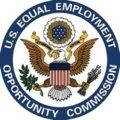 By: Gerald L. Maatman, Jr., Christopher DeGroff, Matthew J. Gagnon, and Alex S. Oxyer
By: Gerald L. Maatman, Jr., Christopher DeGroff, Matthew J. Gagnon, and Alex S. Oxyer
Seyfarth Synopsis: On August 3, 2020, the EEOC announced in a press release that it will resume issuing charge closure documents, or “Notices of Right to Sue.” The Commission had previously suspended issuing closure documents as a result of the COVID-19 pandemic in an effort to help preserve the rights of charging parties and employers. The EEOC’s latest announcement indicates that they are pushing to get back to “business as usual.”
On March 21, 2020, the EEOC announced that it would cease issuing charge closure documents, also known as Notices of Right to Sue (“Notices”), in response to the difficulties facing parties in light of the COVID-19 pandemic. Since March, Notices have only been issued upon request of the charging party. As charging parties generally have 90 days from the issuance of a Notice to pursue their claims in court, the suspension of the Notices has meant a downturn in the filing of discrimination and harassment lawsuits against employers over the past several months.
The EEOC’s August 3 announcement now indicates that EEOC managers and supervisors are reviewing charge resolution recommendations and that the EEOC will begin issuing Notices for charges held in suspense and for charge resolutions that occur on and after August 3, 2020. The Notices that have been held in suspense will be issued over the course of the next six to eight weeks, beginning with those that have been in suspense the longest. The EEOC has also noted that all Notices will be issued by mail.
Implications For Employers
Now that the EEOC is resuming its issuance of Notices, employers with pending EEOC charges should be on the lookout for Notices closing the charge process to arrive by mail. Once a Notice is issued, a charging party has 90 days from receipt to file their claims in court. Accordingly, employers will also likely see an uptick in discrimination and harassment claims filed in court over the next several months.
This announcement is the latest in a series of high priority press releases issued by the EEOC over the past few months. The ongoing changes at the Commission are a must-watch for employers, as they have considerably impacted the charge investigation and resolution processes at the EEOC.